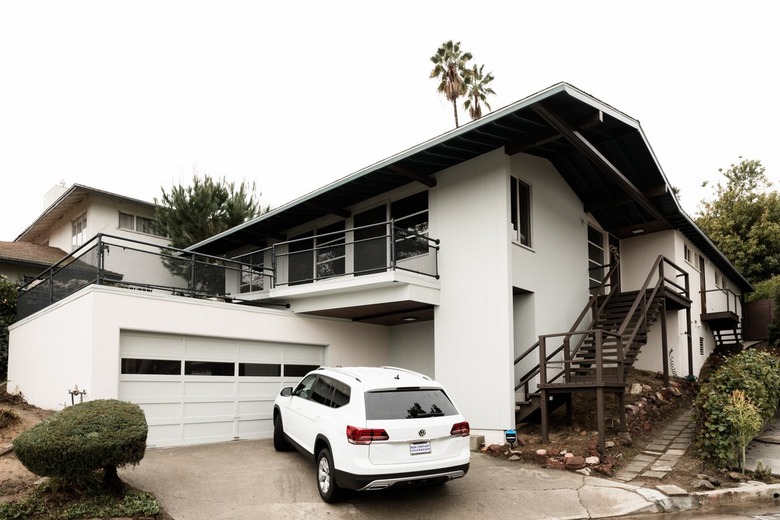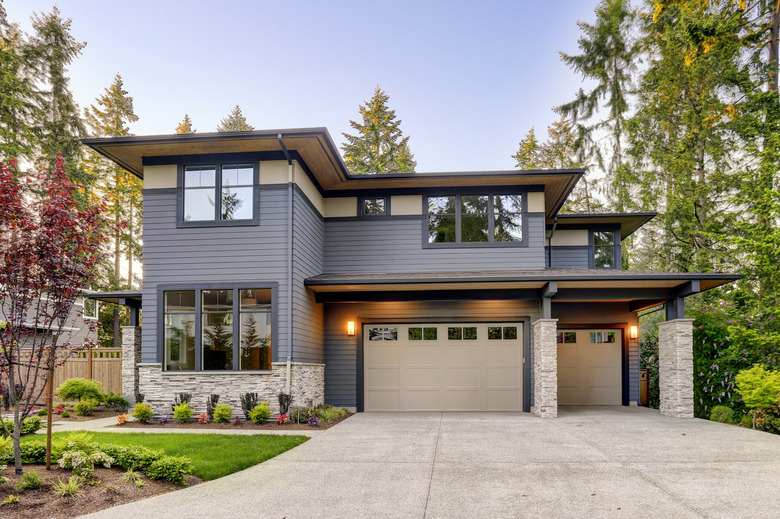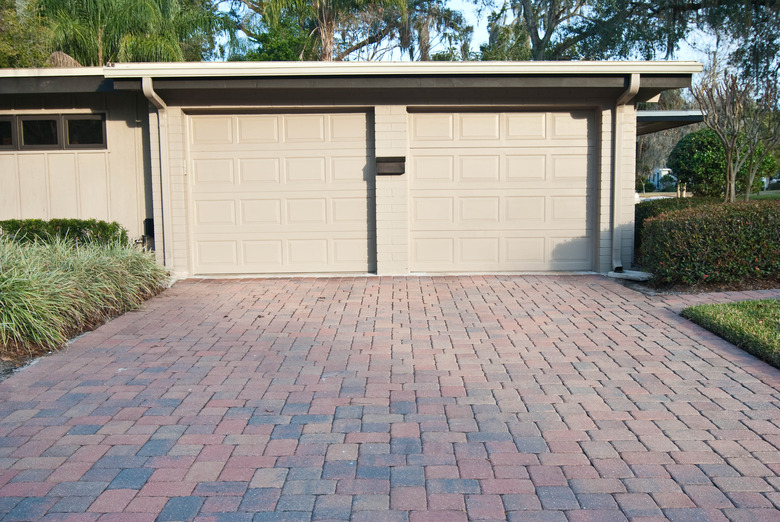A Homeowner's Guide To Choosing A Driveway Material
We may receive a commission on purchases made from links.
Choosing a driveway material is a major life decision; after all, the material you choose could mean a lot of added expense and upkeep over time, or it may be pricey up front but require almost no maintenance from year to year. On the bright side, there's a driveway material for virtually every budget, ranging from under $2 per square foot for the cheapest gravel to $50 per square foot for the priciest pavers.
For the average midrange driveway material, expect to spend $15 or less per square foot installed. While labor fees may be nearly 50 percent of the total cost, it's worth the expense to have the job done correctly by professionals who have an ample crew and the ability to haul, manipulate and install heavy materials—all things you won't necessarily have access to for a DIY project..
Gravel as a Driveway Material
Gravel as a Driveway Material
Gravel is the least expensive driveway material, so it's a common choice for extra-long driveway projects on a budget. A gravel driveway typically costs less than $2 per square foot including installation, although the costs go up if significant land clearing is required before installation.
Proper installation includes setting down a layer of landscaping material before stones of different sizes are poured and spread atop it. While the gravel itself is durable enough to last generations, the driveway often requires more stones to fill in ruts that develop over time. Depending on the climate, the driveway location and its use, you may need to add more gravel every five to 10 years.
Gravel holds up to all kinds of weather, but it isn't a good choice for an area that needs frequent shoveling or plowing, especially on a long driveway. Weeds are also common in gravel driveways, so regular weeding is a must. Gravel may not look as nice as many of the pricier driveway materials, but it's possibly the easiest to install.
Asphalt Driveway Basics
Asphalt Driveway Basics
An asphalt driveway is an excellent choice in moderate climates and even those with cold winters, as this driveway material is less susceptible to cold-related breakage than concrete. In cold climates, asphalt companies use mixtures designed to withstand the freeze and thaw cycles that might otherwise cause cracks, according to Wolf Paving.
Hot weather can fade and deteriorate the surface of an asphalt driveway or even cause it to warp or become soft in some areas. In climates of prolonged hot weather and plenty of sunshine, asphalt is not an ideal choice for these reasons, as it may require regular maintenance to repair the damage.
While most asphalt comes only in black and looks fairly basic as far as style goes, it's among the most common driveway types, and it can last for several decades. Expect to spend $7 to $15 per square foot installed. Minor cracks can be filled yourself with a black liquid sealant, although professionally sealing the entire surface every five to 10 years or as needed helps prevent crumbling and holes.
Asphalt can be tinted with powdered dyes added in before the driveway is poured, although the color range is limited since the base mixture is black. Another alternative with a vast array of color options is a specialty acrylic coating that goes on like a paint. This requires asphalt that's clean and in great condition. Such products may only be available to contractors hired to apply the colorants to your driveway. Since the driveway can be recolored in a light shade such as gray or beige, it could help cut down on heat-related issues on a hot summer day.
Chip Seal Driveway
Chip Seal Driveway
A chip seal or tar-and-chip driveway is a bit like a hybrid between asphalt and gravel, with an appearance similar to asphalt. It's made from the same basic materials as an asphalt driveway but applied a bit differently and at a lower cost. An asphalt driveway is a hot mixture of bitumen and aggregate materials poured over a gravel-like base layer, while a chip seal starts with liquid asphalt applied over an existing driveway as a base. Aggregate materials such as stone chips, gravel and even glass are poured and pressed atop the wet asphalt, according to Dallas Asphalt Paving. Once the driveway hardens, the loose stones are removed.
Since the aggregate stone matter is not premixed into liquid asphalt, a tar-and-chip driveway lasts seven to 10 years, significantly less time than an asphalt driveway. Tar-and-chip driveways are not ideal for long drives that require frequent plowing, as the plow may loosen or remove hunks of the driveway material. Expect to spend $5 to $10 per square foot for a chip seal driveway.
Poured Concrete Driveway
Poured Concrete Driveway
The cost to install a poured concrete driveway varies quite a bit, ranging from $3 to $18 per square foot. Variables such as added tints or customized slab shapes and layouts push the price up from standard rectangular concrete slabs that comprise the typical concrete driveway. Since the material is poured into place, concrete can also be stamped with textures, dyes and patterns to mimic the look of pricier pavers or natural stone.
Concrete is a common driveway material in that it's relatively low maintenance, lasts a long time and holds up well in many climates. It is very likely to crack in places, but minor cracks do not affect the overall structure. However, water that freezes inside cracks can cause additional slab damage in some situations. Concrete also stains, but many stains come off with a pressure washer or by scrubbing with a strong cleaner. A concrete driveway lasts for decades in most cases. Since it's fairly smooth, it's also easy to shovel.
Pavers as Driveway Material
Pavers as Driveway Material
Pavers of brick, stone or concrete allow for extra customization in the look of a driveway, including the color of the material and patterns within the layout. These add major curb appeal to the landscape, but that high-end look comes at a high cost due to the labor involved. The installation may take quite a while for a complex layout or a lengthy driveway.
Pavers average $6 to $10 per square foot but may run as much as $50 per square foot for complicated installation and pricey per-piece materials, such as uncommon forms of cobblestone. While the pavers themselves tend to be durable, areas may settle and shift over time. Paver driveway repairs are usually a bit easier than those for some other driveway materials as long as more of the same pavers are still available or already stored at your home. If pavers lift or shift a bit, they may get damaged by a plow (if the driveway is so long that it requires plowing). As pavers settle over time, weeds may develop in the gaps between the pieces, requiring a bit of weed removal.


